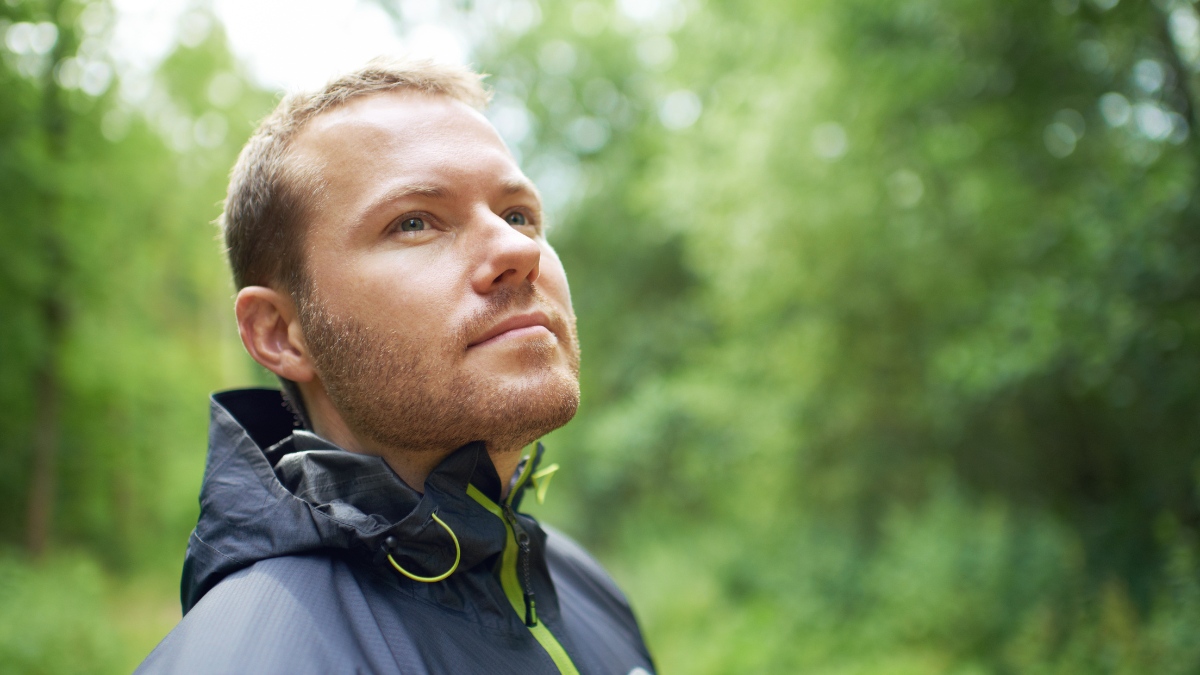Heroin Addiction Treatment in Boulder, Colorado
Heroin addiction treatment in Boulder, Colorado, at Flatirons Recovery provides a safe, compassionate, and evidence-based path toward healing. Addiction is not a sign of weakness but a response to pain, trauma, or disconnection. Through clinical expertise and mindfulness-based care, our team helps clients rebuild self-worth, develop healthy coping skills, and rediscover purpose in their recovery journey.
At Flatirons Recovery, healing begins with genuine human connection and continues through personalized care that addresses the whole person: mind, body, and spirit. Surrounded by Boulder’s natural beauty and guided by an experienced clinical team, clients find the support, structure, and clarity needed to create lasting change and a fulfilling life in recovery.
Understanding Why Heroin Is So Addictive
Heroin is a powerful opioid derived from morphine, a natural substance found in the opium poppy plant. It can appear as a white or brown powder or as a sticky black substance known as black tar heroin. Whether injected, snorted, or smoked, heroin acts rapidly on the brain’s reward system, producing intense euphoria that can lead to dependence after only a few uses.
Understanding what makes heroin so addictive helps replace shame with compassion. Addiction is not a moral failure but a complex interaction between biology, emotion, and environment. At our heroin rehab in Boulder, clients explore these dynamics, gaining awareness that supports healing and balance.
Heroin is so addictive because:
- It floods the brain with dopamine. This creates intense pleasure that the brain begins to crave.
- It rewires the brain’s reward system. Over time, heroin use becomes linked with survival itself.
- It builds physical dependence quickly. Even short-term use can lead to painful withdrawal symptoms when use stops.
- It numbs emotional pain. Many individuals use heroin to cope with trauma, stress, or grief, which reinforces dependence.
- It produces tolerance. The body adapts quickly, requiring higher doses to achieve the same effects.
Heroin addiction affects both body and mind. With professional treatment, this cycle can be broken, allowing individuals to restore purpose, stability, and self-compassion.

Causes and Risk Factors
Heroin addiction can affect anyone, regardless of age or background. In many cases, it begins with prescribed opioid use that gradually develops into dependence. Family history, trauma, and mental health challenges such as anxiety or depression can also increase vulnerability.
Environmental stressors, social isolation, and exposure to substance use contribute to heroin dependence. These factors do not define a person’s worth but help explain how addiction develops. Understanding these root causes allows our clinicians to implement heroin addiction treatment in Boulder, Colorado, that addresses both the symptoms and the underlying pain that fuels substance use.
Signs of Heroin Use and Addiction
Recognizing the signs of heroin addiction can make early intervention possible. These signs often develop gradually, affecting health, behavior, and relationships. Awareness allows individuals and families to seek help before addiction deepens.
At our heroin treatment center in Colorado, compassion takes precedence over judgment. Addiction is a medical condition that responds best to professional, consistent, and supportive care.
Physical Signs
- Constricted pupils and slowed breathing
- Drowsiness or frequent fatigue
- Track marks, bruising, or skin sores
- Recurrent illness or sudden weight loss
Behavioral and Emotional Signs
- Isolation from loved ones
- Declining performance at work or school
- Secrecy or unexplained financial problems
- Mood swings, anxiety, or irritability
If you notice these patterns, reach out for help. Flatirons Recovery offers confidential assessments and a safe environment to begin healing.
Overdose Awareness and Harm Reduction
Recognizing the dangers of heroin use is essential to protecting life and supporting recovery. Overdose often occurs when tolerance decreases or heroin is mixed with other substances such as fentanyl or alcohol. Because heroin slows breathing and heart rate, an overdose can quickly become life-threatening without medical attention.
Our heroin addiction treatment in Boulder, Colorado, teaches clients and families about overdose prevention as part of a comprehensive care plan. Clients also learn harm reduction strategies such as never using alone, seeking immediate medical help if symptoms appear, and having naloxone (Narcan®) available. This knowledge promotes safety, responsibility, and awareness while encouraging the next step toward treatment.

Heroin Withdrawal Symptoms
Heroin withdrawal can be physically painful and emotionally exhausting. Symptoms may begin within hours after the last use and can last for several days. Without proper medical care, the discomfort often leads to relapse. Flatirons Recovery offers professional support throughout the withdrawal process to ensure clients remain safe, stable, and well-prepared for the next stage of recovery.
Common Withdrawal Symptoms
- Muscle and joint pain
- Restlessness, fatigue, or insomnia
- Chills, sweating, or a runny nose
- Nausea, vomiting, or diarrhea
- Cravings, anxiety, or mood swings
Through coordinated medical detox services and medication support when needed, clients begin recovery in a safe, supportive environment. Early stabilization allows for a smoother transition into therapy and long-term healing.
Medications Used in Heroin Addiction Treatment Centers
For some clients, medications play an important role in supporting early stabilization and reducing cravings during heroin recovery. Flatirons Recovery collaborates with trusted local medical providers who offer FDA-approved medication support to promote comfort and safety during detox and early treatment. These medications help clients manage withdrawal symptoms and focus on building a foundation for long-term recovery.
Common Medications Used in Coordinated Care
- Buprenorphine (Suboxone®): Helps reduce cravings and withdrawal discomfort.
- Methadone: Used under medical supervision to stabilize brain chemistry during recovery.
- Naltrexone (Vivitrol®): Blocks euphoric effects of heroin and lowers relapse risk.
This type of care is always coordinated as part of a broader recovery plan. Medication support is never the sole focus. It is combined with evidence-based therapy, trauma-informed principles, and mindfulness-based practices to help clients heal physically, emotionally, and mentally. Flatirons Recovery follows best practices consistent with the SAMHSA 2024 Federal Guidelines for Opioid Treatment Programs, ensuring safe, effective, and compassionate care for each client.

Treatment for Heroin Addiction
Flatirons Recovery’s heroin addiction treatment in Boulder, Colorado, provides a personalized plan that addresses the physical, emotional, and spiritual aspects of recovery. The approach combines medical stabilization, therapeutic support, and mindfulness to help clients build lasting strength and resilience.
Treatment may include medication support when clinically appropriate, therapies, and structured programs that promote connection and accountability. Each plan is designed with safety, dignity, and empowerment in mind. The men’s and women’s programs offer secure and supportive environments for growth. Whether through day treatment, intensive outpatient care, or residential recovery at the Boulder Ranch, clients receive compassionate, evidence-based care tailored to their needs.
Flatirons Recovery offers multiple levels of care to support every stage of healing. Programs meet clients where they are, offering structure, community, and flexibility as recovery evolves.
Tailored Treatment Programs For Heroin Addiction
Heroin addiction affects the brain and body in ways that require intentional, structured, and ongoing support. Our heroin rehab in Boulder offers a continuum of care designed to meet the unique challenges of opioid dependence, including cravings, withdrawal symptoms, and the emotional toll of relapse cycles. Each level of care integrates evidence-based therapy, mindfulness, and peer support to help clients rebuild stability and long-term recovery.
Partial Hospitalization Program (PHP / Day Treatment)
PHP provides structured daytime treatment that includes individual therapy, group sessions, and recovery education. Clients return home or to a sober living environment each evening. This balance allows for consistent care while maintaining personal independence.
Intensive Outpatient Program (IOP)
IOP supports individuals who are ready for more independence but still need strong clinical structure. Because heroin addiction often involves powerful psychological cravings and habit-driven behaviors, IOP sessions emphasize relapse prevention, coping strategies, emotional regulation, and rebuilding daily routines. Both day and evening options allow clients to integrate recovery with work, family, or school commitments.
Recovery Ranch (Residential Program)
The Recovery Ranch offers 24-hour support in a calm Boulder environment, which is especially beneficial for those recovering from heroin addiction, where triggers and stress can quickly lead to relapse. The structured schedule includes therapy, mindfulness practices, and experiential activities such as art, hiking, and nature-based healing. This immersive setting helps clients break the cycle of use, rebuild physical and emotional balance, and strengthen early recovery foundations.
Sober Living
We partner with trusted sober living residences that provide accountability and community—two critical elements for individuals recovering from heroin addiction. These residences offer structure, routine, and peer support, helping clients manage triggers, maintain sobriety, and build healthy habits as they transition back into daily life.
Aftercare and Alumni Support
Long-term recovery from heroin addiction requires ongoing connection. After formal treatment, clients enter aftercare, which may include continued therapy, recovery coaching, alumni events, and sober living support. This ongoing accountability helps individuals maintain progress, navigate challenges, and stay grounded in a supportive community.
Healing Mind and Body Through Dual Diagnosis Care
Many individuals living with heroin addiction also experience mental health challenges such as anxiety, depression, or post-traumatic stress disorder. These co-occurring conditions often fuel substance use, creating a cycle that can be difficult to break without professional, integrated care. As a leading heroin treatment center in Colorado, clients receive comprehensive dual-diagnosis support that addresses both addiction and mental health for lasting healing.
Flatirons Recovery’s dual-diagnosis program combines psychiatric support with evidence-based therapies, including Cognitive Behavioral Therapy (CBT), Dialectical Behavior Therapy (DBT), and Eye Movement Desensitization and Reprocessing (EMDR). Mindfulness-based practices and trauma-informed care principles help clients process distress, strengthen self-awareness, and develop emotional regulation skills.
By treating both conditions together, clients develop the resilience and clarity needed for lasting recovery. This integrated approach empowers individuals to heal fully and maintain balance in every area of life.
Compassionate Guidance Through Insurance and Admissions
Beginning treatment can feel overwhelming, but Flatirons Recovery makes the process simple and reassuring from the very first call. Our admissions team helps individuals and families navigate insurance options, verify benefits, and understand exactly what coverage includes. We work directly with providers to minimize confusion and ensure financial clarity, so clients can focus entirely on their recovery rather than paperwork.
Once insurance verification is complete, our staff coordinates each step of admission with care and professionalism. This includes assessing clinical needs, matching clients with the right program, and scheduling an intake at a time that feels comfortable and accessible.
Frequently Asked Questions (FAQs)
Seeking treatment for heroin addiction often comes with questions about what to expect, how the process works, and what support looks like at every stage. Below are some of the most common questions clients and families ask when considering heroin addiction treatment at Flatirons Recovery.
How long does heroin addiction treatment usually last?
The length of treatment depends on each client’s needs and progress. Many people begin with 30-, 60-, or 90-day programs, continuing with outpatient care or aftercare to maintain long-term stability.
What happens during the first few days of treatment?
The first days of treatment typically involve an assessment, orientation, and stabilization phase. Clients meet their clinical team, begin therapy sessions, and receive guidance on what to expect in their program.
Is heroin addiction treatment confidential?
Yes. Flatirons Recovery follows all HIPAA regulations to ensure complete confidentiality. Every assessment, therapy session, and medical record is handled with respect and discretion, creating a safe and private environment for healing.
Does Flatirons Recovery provide support for detox and withdrawal?
Yes. We partner with trusted local providers to facilitate medical detox, ensuring safety and comfort during withdrawal. Once clients are physically stable, they transition directly into therapeutic programming for continued recovery.
How does Flatirons Recovery’s environment in Boulder support healing and recovery?
Our serene Boulder setting offers a peaceful backdrop for healing. Clients engage in mindfulness, nature walks, and reflective outdoor activities that enhance therapy and restore balance throughout recovery.

Begin Healing With Heroin Addiction Treatment in Boulder, Colorado
Healing is possible with the right support and guidance. Flatirons Recovery’s heroin addiction treatment in Boulder, Colorado, helps individuals take meaningful steps toward lasting recovery in a peaceful, compassionate setting. Each client receives care tailored to their unique needs while building strength, confidence, and stability for the future.
If you or someone you care about is ready to take the next step, our admissions specialists are here to help. Contact us today to begin the path toward healing and renewed purpose.